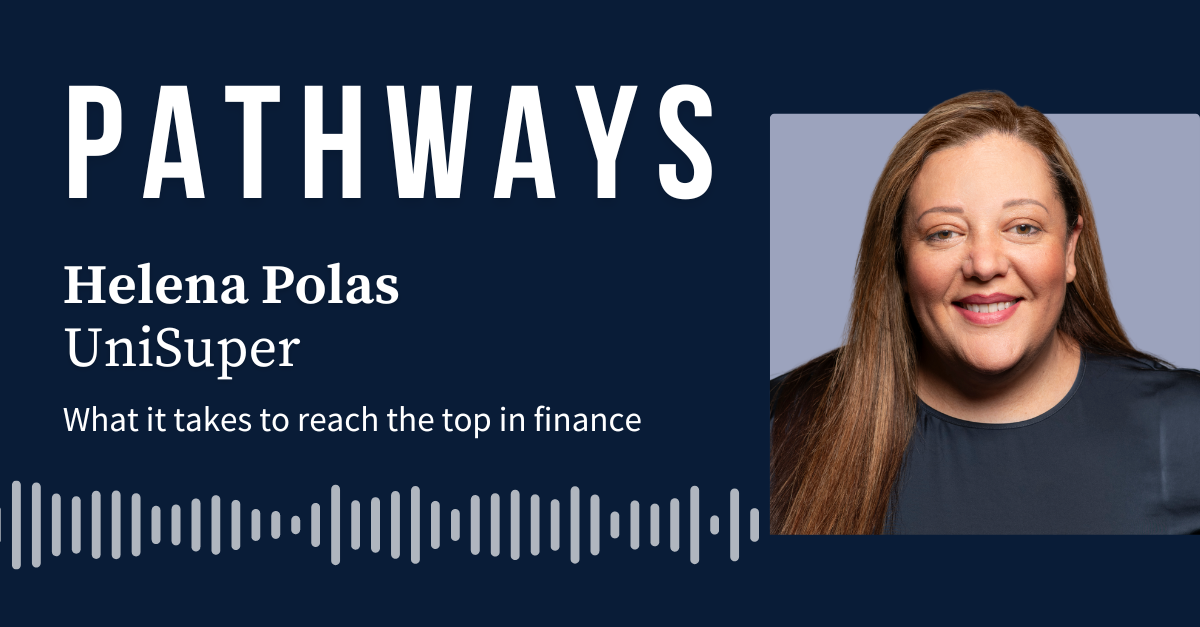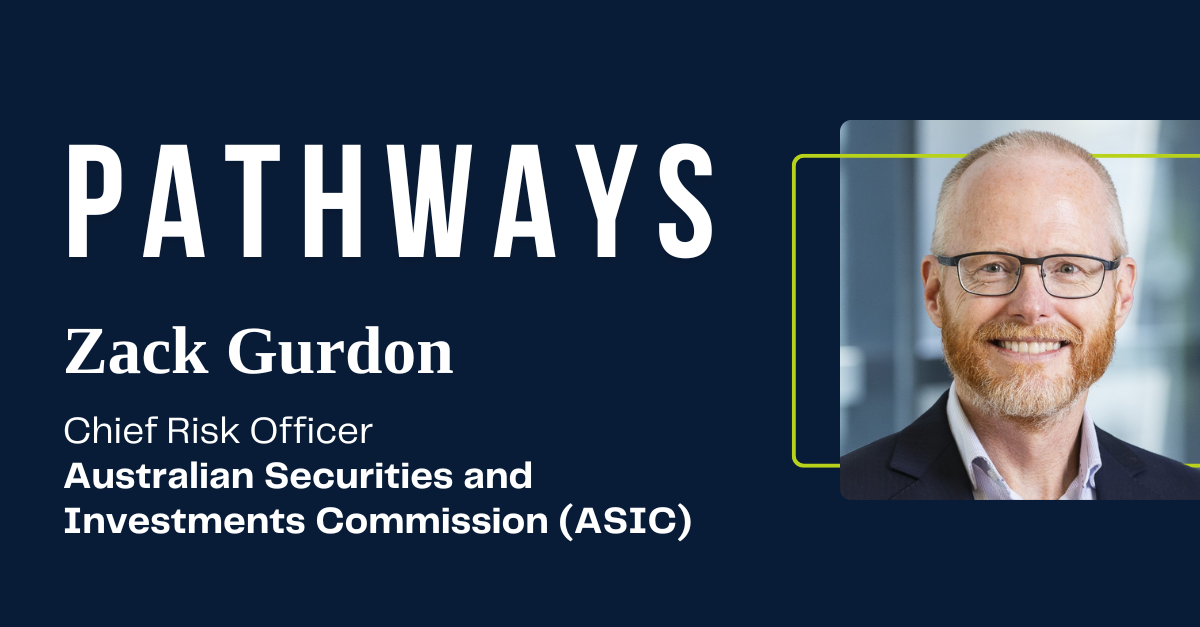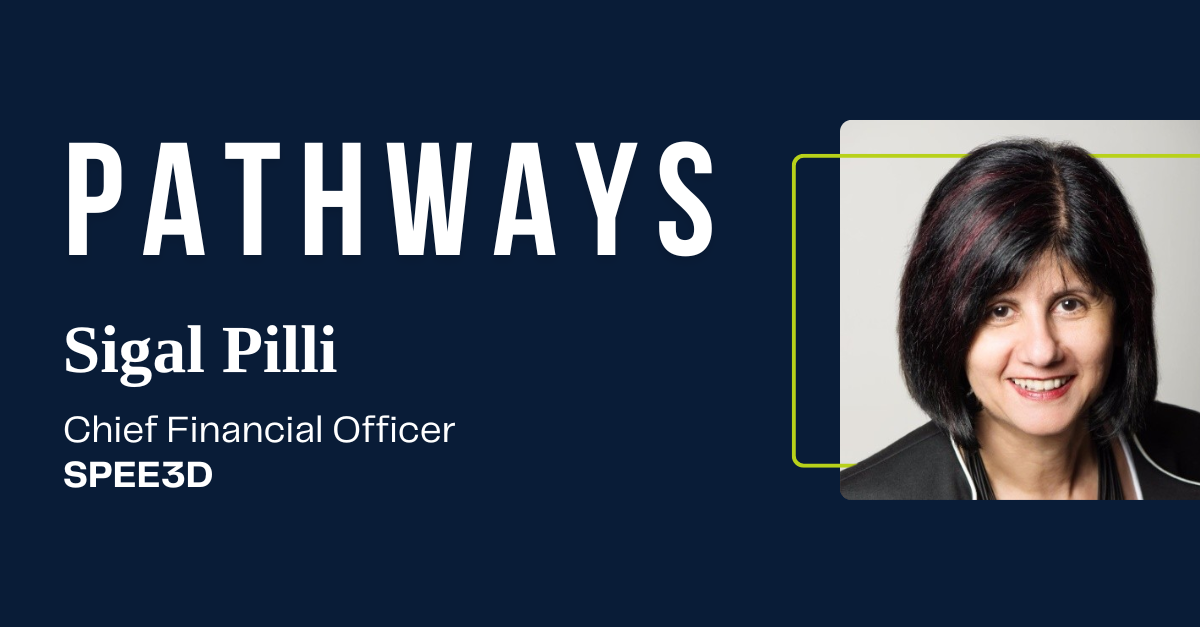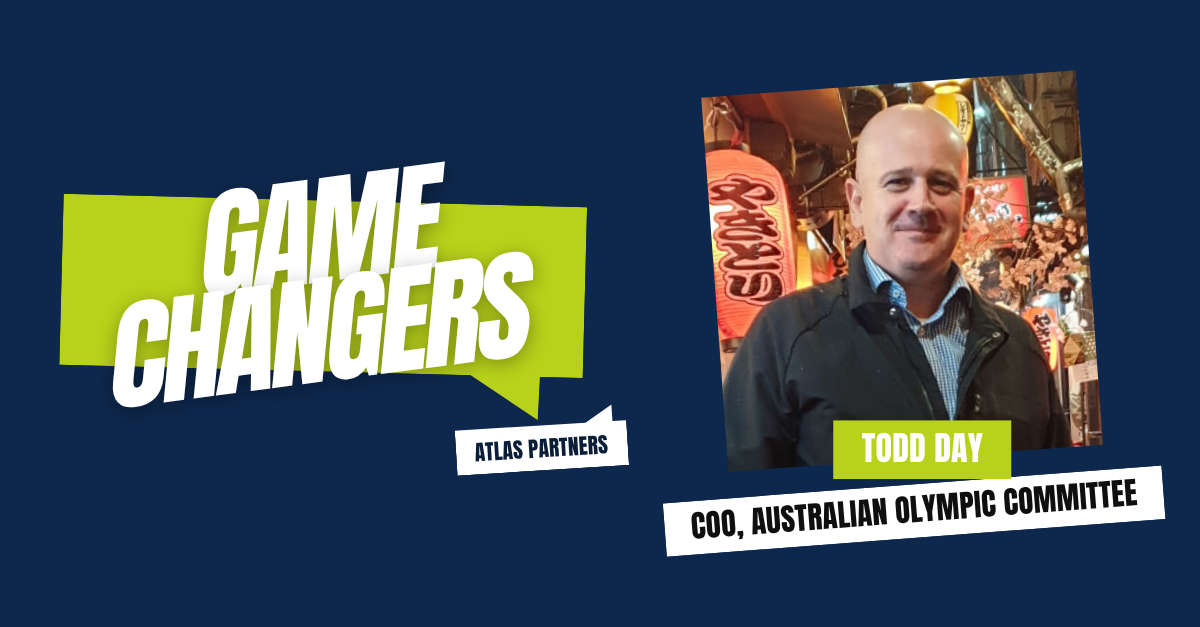
Pathways — Helena Polas, UniSuper
With a resume that spans KPMG, NAB and now UniSuper, Helena Polas has learnt a thing or two about career success along the journey.
The Group Financial Controller of UniSuper, one Australia’s largest superannuation funds, joined Atlas Director, Liam Killen for our Pathways podcast series to chat about navigating the challenges in big business, life in superannuation, the importance of mentor relationships and what it takes to reach the top in finance.
We’re going to be running through your journey with UniSuper and some of the lessons along the way. I might just get you to describe for our audience your role at UniSuper and what you’re responsible for.
No problem. I’m the Group Financial Controller at UniSuper, I’ve been in this role coming up to four years now and I am responsible for most of what you typically find in a finance function. So, accounts payable, payroll, member operations and banking, financial reporting, statutory reporting, regulatory reporting, financial governance, governance of crediting rates and finance systems.
We’ll run through UniSuper and some of the interesting challenges and benefits of the organisation where you are. Before we do, I wouldn’t mind just going through the start of your journey, so just tell us a little bit about your early days with KPMG and then that first move into industry, what that was like in your early days.
I spent four years at KPMG, and I was based in their middle market and advisory function. I looked at small to medium sized clients and worked on tax and accounting compliance requirements. The clients were interesting. Even though they were small to medium -in terms of what a big four chartered firm would look at, they were recognisable brands. So, it’s actually quite good to be able to say to your friends, oh, I worked on such and such.
For the first couple of years it was great. It was a very steep learning curve. They don’t shy away from throwing you into the deep end when you go into a big four. But that being said, the learning and development support that you get in that type of organisation is second to none. I started my CA there and I remember we would have early morning lessons where we would do mock exams and things like that. They would give us draft exam questions and that type of support is amazing.
Even when I worked at NAB, I don’t even think we had that type of support in relation to professional association qualifications. So, from that point of view, it was great. It was wonderful being part of a peer group. You go in at a level when you’re in a chartered firm – and I think from memory there was about 20 or so of us at the same level coming up in that division. So, you get to know those people pretty well. And I know I still stay connected with quite a few of the people I started with at KPMG.
It’s always a good starting point, beginning in a firm like KPMG, because like yourself your peers move through various industries, and you tend to meet people that you worked with years ago. And plus it’s Melbourne, which is very small. So, I do come across people that I worked with previously. Quite often.
A large part of your journey was at NAB. Tell us a little bit about some of the challenges about navigating that broad, vast corporate structure that it was.
I left KPMG because I wanted to be part of a business. As a consultant, sometimes you feel like an outsider looking in and I wanted to be closer to and understand the way a business is managed and led. But I did like a couple of the things about KPMG, which is what attracted me to NAB.
Whilst not up there in terms of providing developmental support, there’s still a lot of training that you get working for a big bank and because it’s big, you’ve got the opportunity to move around. So, I think my biggest challenge going into NAB was, wow, this place is huge. 35,000 people. Making sense of how all of the numerous divisions fit together, getting to know people and building my network.
It’s always easier to get things done in a large organisation when you have a relationship with someone and you can pick up the phone and say, hey, have you seen this come across your desk? Can you have a look at it for me? Sooner rather than later. In my first role at NAB, my people leader was great, and he encouraged me to go out and build my network. I ended up working in pretty much every part of finance, but every one of those roles was the outcome of an existing relationship.
Well, tell us about UniSuper. So, moving away from NAB; a massive, complex organisation, also shareholder-led, into a member-led organisation. Tell us about the differences there, the impacts on culture and performance.
NAB is a large bank, they’ve been around for a while. Their culture and their performance norms are quite mature, and they’ve been in place for quite some time. I guess it’s easy to see why they’re so disciplined in their approach. From a finance perspective, if you’re putting out a results announcement or a quarterly trading update, you need to ensure that, the teams that support those deliverables have the discipline behind them to produce a high-quality deliverable, because that’s scrutinised by the whole market, right?
You’ve got shareholders looking at that, you’ve got bank customers, you’ve got potential investors looking at it, you’ve got regulators looking at it, you’ve got analysts looking at that sort of thing as well. So, it’s high profile and as a result, you’ve got that sharpness in terms of how commercial they are and how they operate. I think superannuation for a long time has operated under the radar. That being said, that’s changed dramatically over the last couple of years. The sector has grown exponentially. The sector’s now bigger than the banking sector. There’s a lot more attention from regulators too.
Expectations from members as well have also increased.. UniSuper is particularly proud of their member app. So, members can now go in and check their superannuation balance in real time. The appetite for such things from our members demonstrates the increase in member engagement. It’s been such a wonderful journey seeing superannuation funds make that transition. And in terms of being commercial, they are there.
What I noticed when I joined UniSuper, was this focus on doing the right thing by the member. From the time that I walked into the building, it was part of every conversation, every interaction that I had. It wasn’t people just throwing out a company line. They were actually thinking, oh, well, we need to think about what’s right for the member. And it was part of every conversation. And that focus has only gotten stronger, and I think it will continue to do so. It’s something that we feel very strongly about. And as a member myself, it makes me feel, like I’m doing the right thing when it comes to my own retirement. I think that that’s probably the edge that superannuation has – it’s that stewardship mindset, which is very rewarding.
What are some of the good things and some of the challenges about working in superannuation?
I’m very much someone who enjoys change and transformation. Doing the same thing or having any type of repetition in my role is not for me. So, if you’re that type of person, it’s a great sector to target, because in the four years that I’ve been here, I don’t think we’ve ever had a period where things have stayed the same. It’s been a continual evolution of new things happening, the fund growing, and I can see how that impacts my own role also.
My role has continued to grow over that time as well, in response to the environment. So, if that’s the type of thing that you find rewarding, then it’s a sector that is worth a look. There’s lots of opportunity, across the board, not just for finance type of roles, because as a fund and sector we are changing and evolving.
In terms of finance roles specifically, some of the great things we do are being able to work with other peer funds. We’re doing more and more of that, particularly in relation to some of the regulatory change coming through. And we’re having some great conversations, which, again, you know, always have the member at the heart. It’s a sector where people tend to connect even between funds. I enjoy that type of aspect.
If you’ve got a strong values mindset, you don’t ever leave the office thinking, did what I do today make a difference? There’s always that member aspect, which is the reason why a lot of us do what we do.
You had a great people leader at NAB who really encouraged you to build relationships and was a huge factor in the success that you had over your journey there. Is there anyone that you think of as having a particularly strong impact on the shape and direction of your career?
There have been quite a few people. I tend to strive to have a very open and honest relationship with my own leader. And then, you know, as I move into another role, I tend to keep that relationship and use them in a type of mentoring capacity. There’s been one people leader of mine, who, you know, gave me this great opportunity at UniSuper and for that I’ll always be grateful.
But I think the onus is on you. When it comes to finding a mentor and ensuring that the relationship stays fresh, then you’re only going to get out of it what you put in. But that being said, I use all my old people leaders, as sounding boards, but it’s also really refreshing to talk to somebody who doesn’t really have anything to do with what you do on a day-to-day basis. And you can get some valuable insights there as well. At the moment, I’m participating in a mentoring program by FEAL, which has been awesome.
For those listening to this interview and wondering what it takes to reach those upper levels of finance. Do you have any advice for them?
Leadership is really hard. I feel uncomfortable probably about 85% of the time. It really pushes you to your limits. So, if you’re not someone who likes to play outside your comfort zone, probably not for you, but I think that’s okay. There are other ways to progress outside of leadership.
As a leader you need to be self-aware – you know you’re being observed all the time. Whether it’s by your directs, your indirects, your own leaders. You know you’re there, right? There’s no hiding, there’s no playing in the shadows.
And then you need to be prepared to take on board feedback, and that’s where that self-awareness piece really is needed. There’s no point in being defensive. It’s just way too tiring. And you won’t progress that way either. So even when you get to that level where you are a leader or a leader of leaders, you’re still learning all the time.
Listen more than you speak. Listening is undervalued. If you actually just listen to what people are telling you, you can connect the dots. And it’s being able to connect the dots that becomes a powerful tool in your toolkit. That’s a good one for the introverts out there like me.
Some would say that people leadership is more for extroverts, people that like being around people and get energy from being around people. But what would your advice be for introverts? People that really struggle with that. Is there anything that you’ve found to help you as an introvert, as somebody that struggles with that aspect of the role?
I looked at leadership as a skill, like any other skill. Coming from an SME type of background where I needed to learn, I approached leadership as I would any other skill. And when you’re learning something new, it feels uncomfortable. So, I didn’t think to myself, just because I’m an introvert, I can’t do this. I don’t like public speaking and things like that, which I think is what most introverts associate with being a leader. But like anything else, the more you do it, the more it becomes second nature and you become comfortable. It’s just being able and willing to push yourself past that point where you’re comfortable. That’s where you’ll continue to grow.
And I think if an introvert is prepared to do that, in some cases they can actually be a better leader because they’re more open to that listening and trying to understand what makes someone tick, they tend to be a bit more empathetic and it’s a bit more about, the others rather than them. But that being said, if you are an introvert, you need to then have measures in place to look after yourself and manage your own energy levels and set aside time for a timeout where you can recharge. I think introverts are just as capable as extroverts when it comes to being good leaders.
Well, Helena, thanks so much for your time and for talking us through your pathway. Thanks again.
No problem. Thank you.




